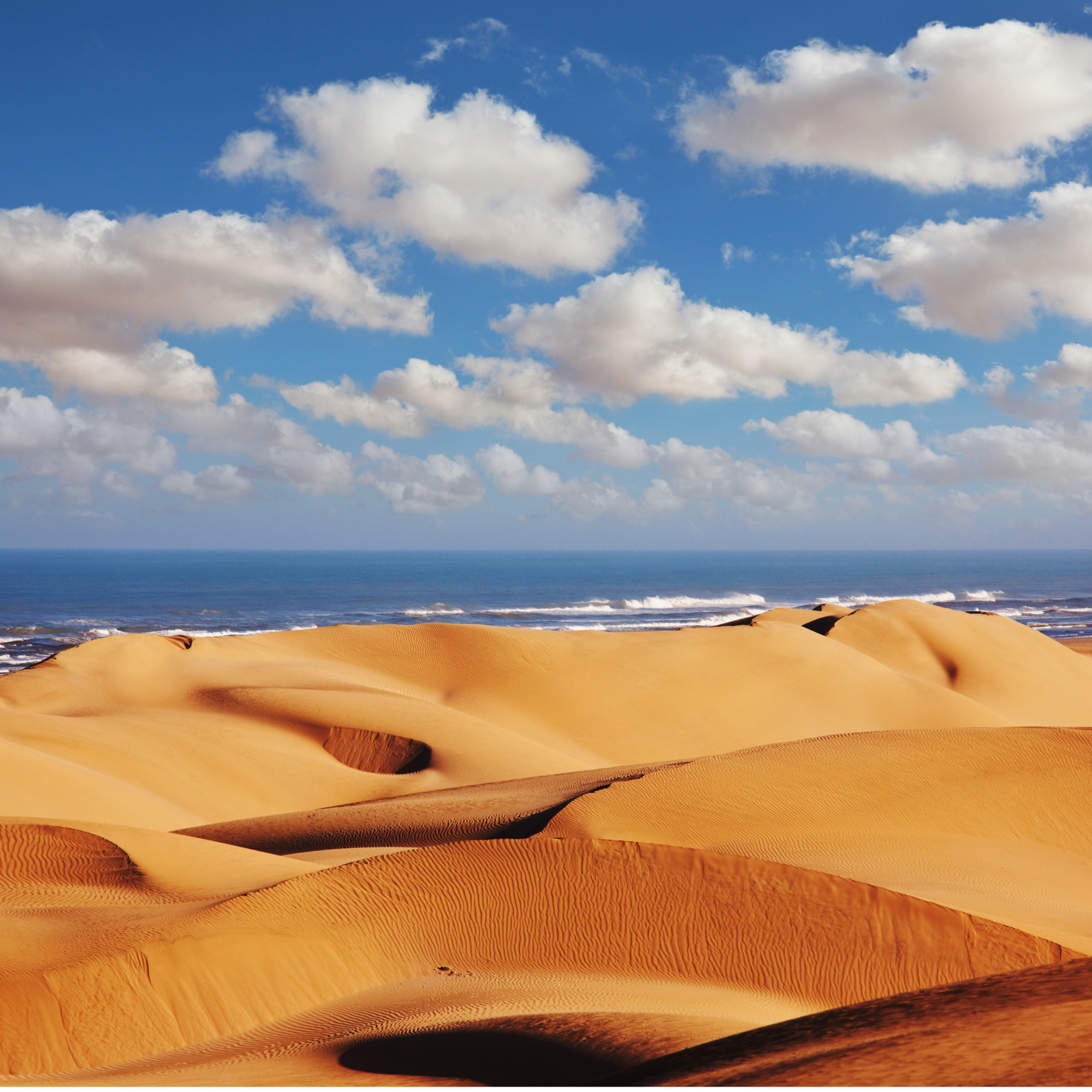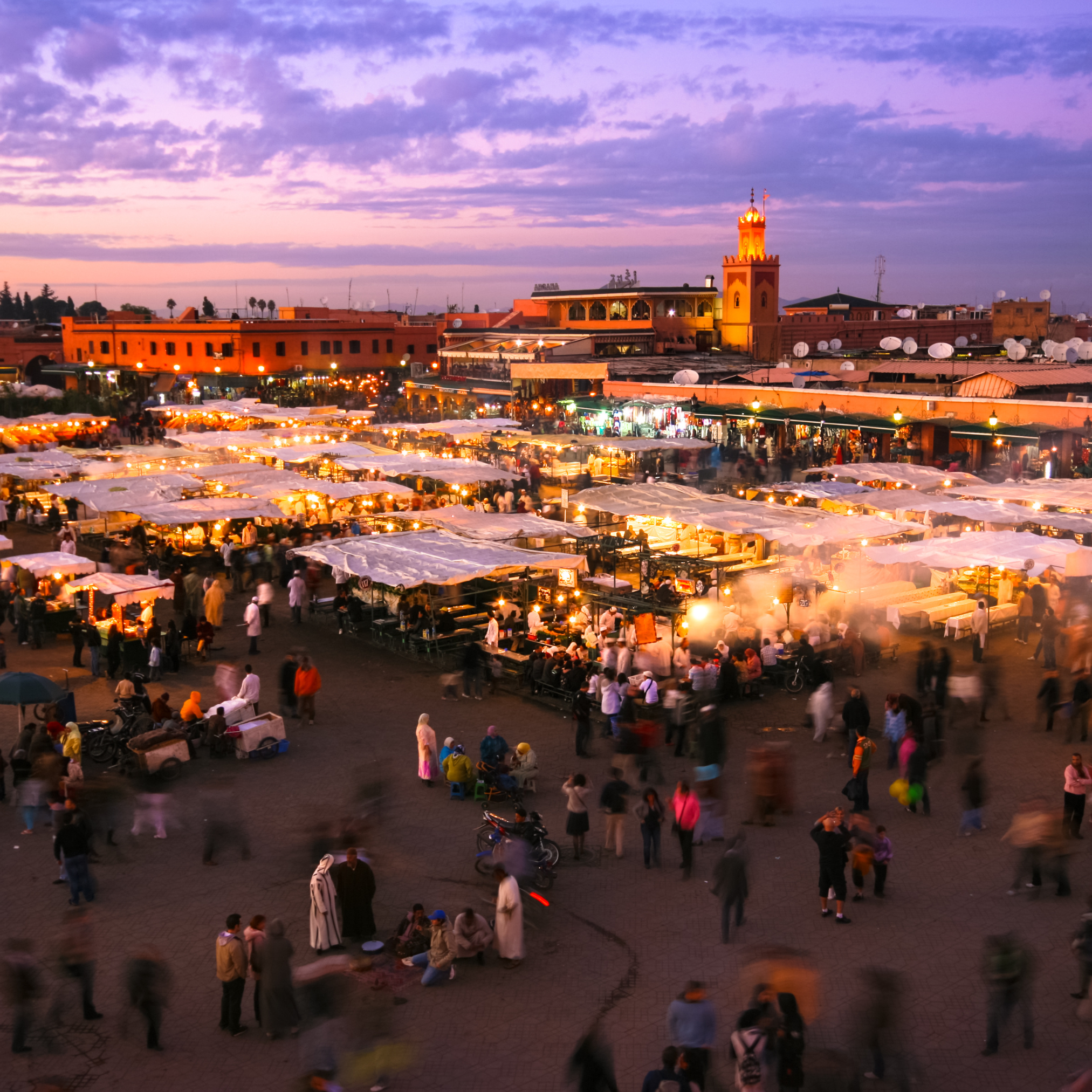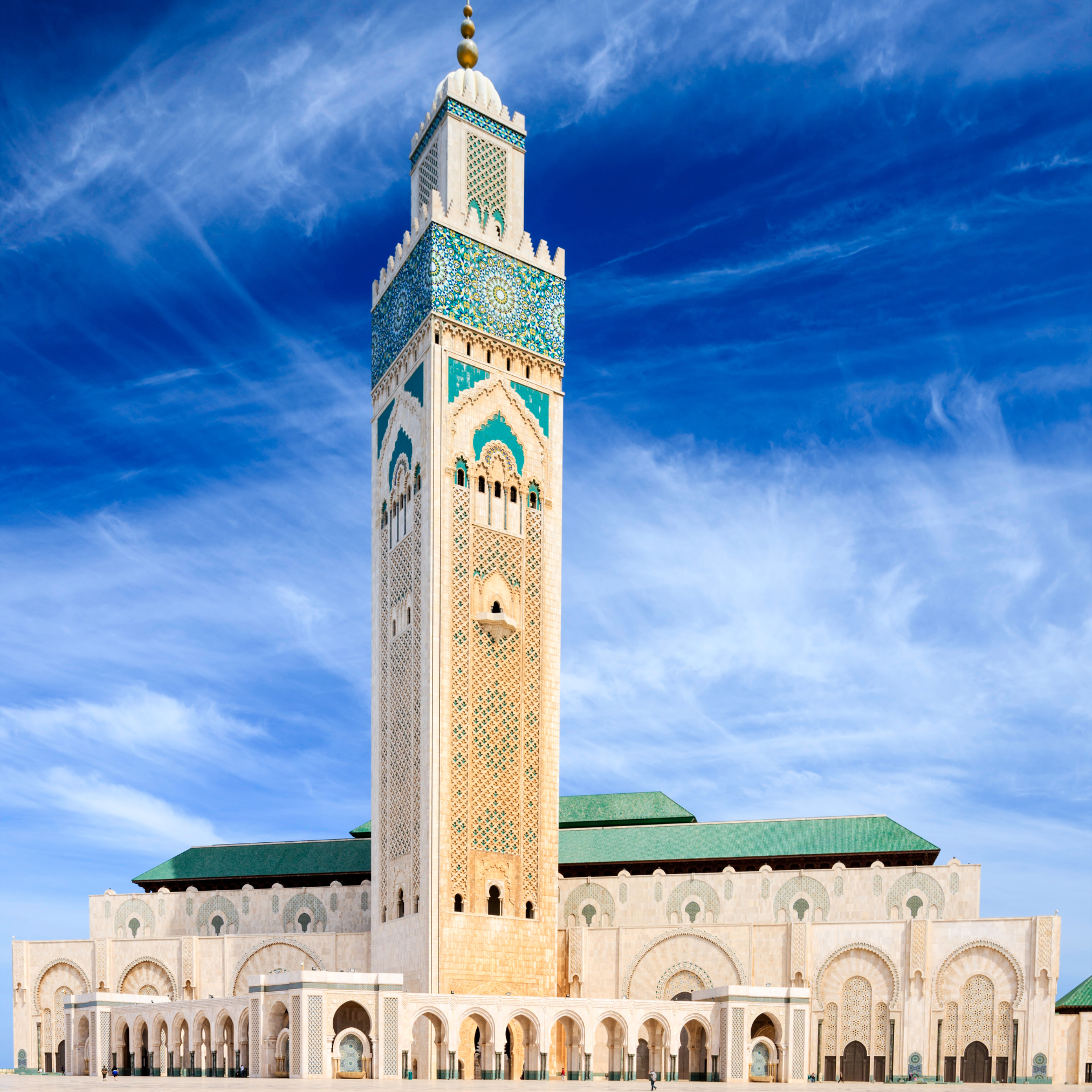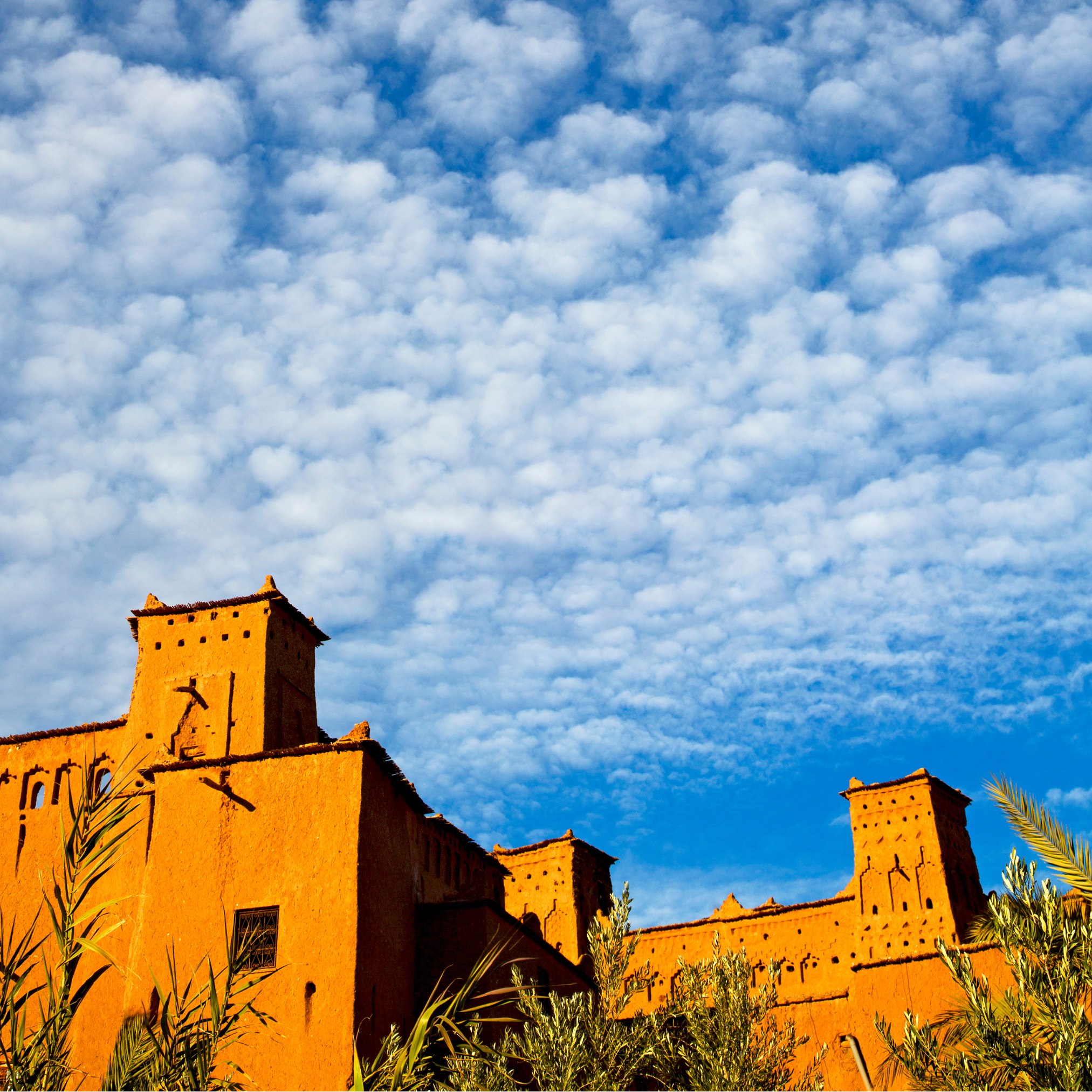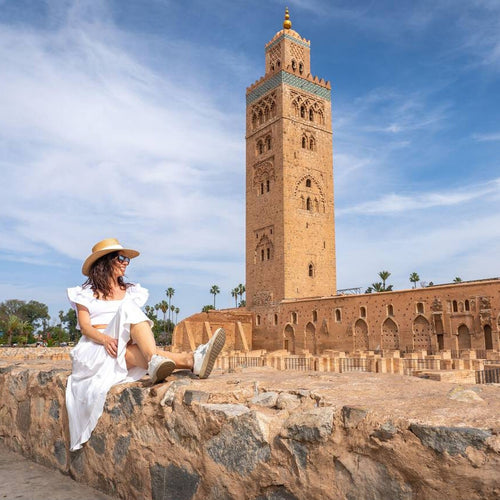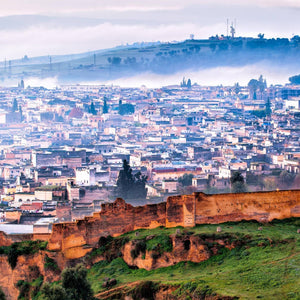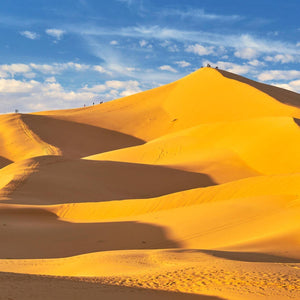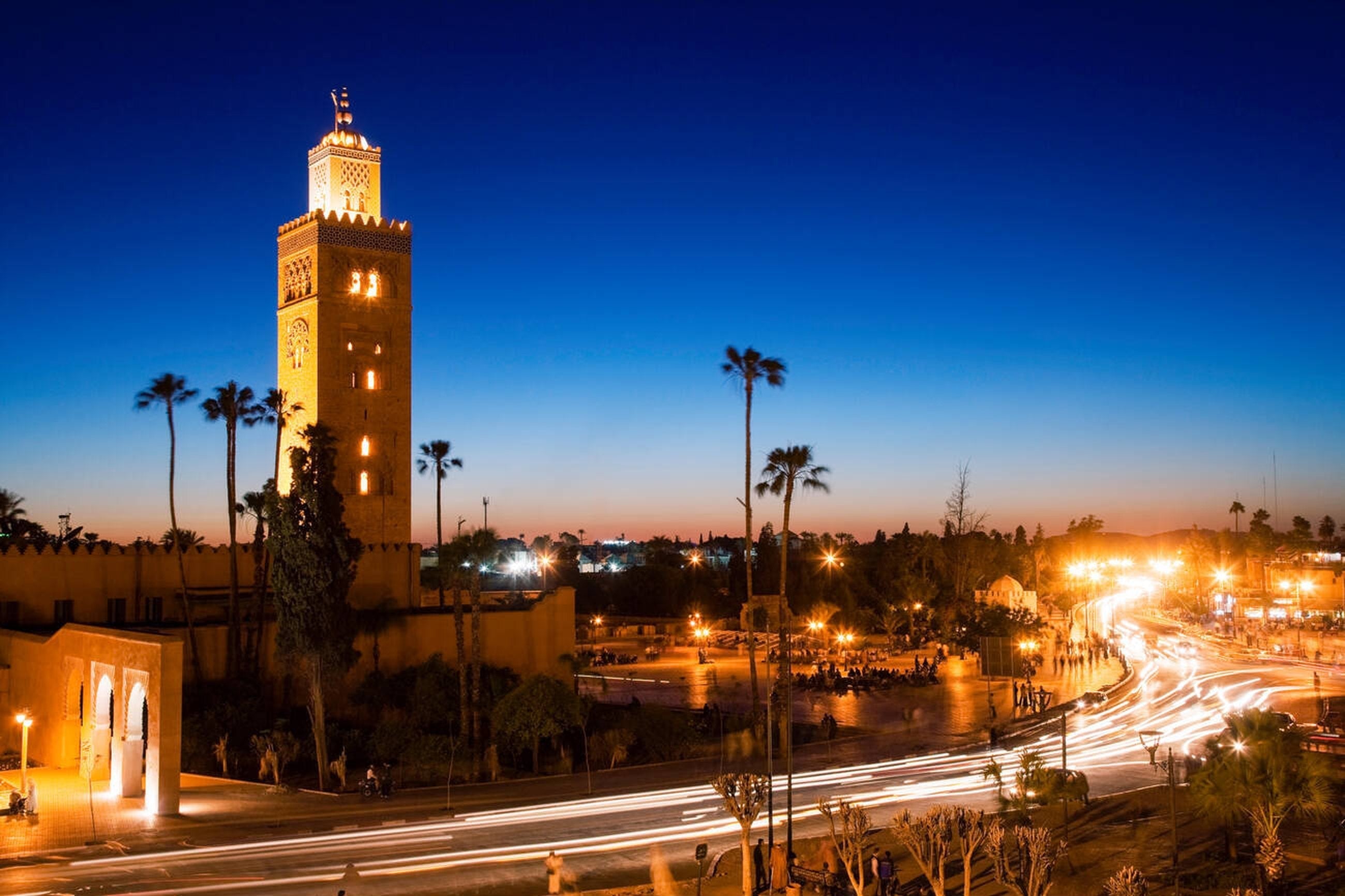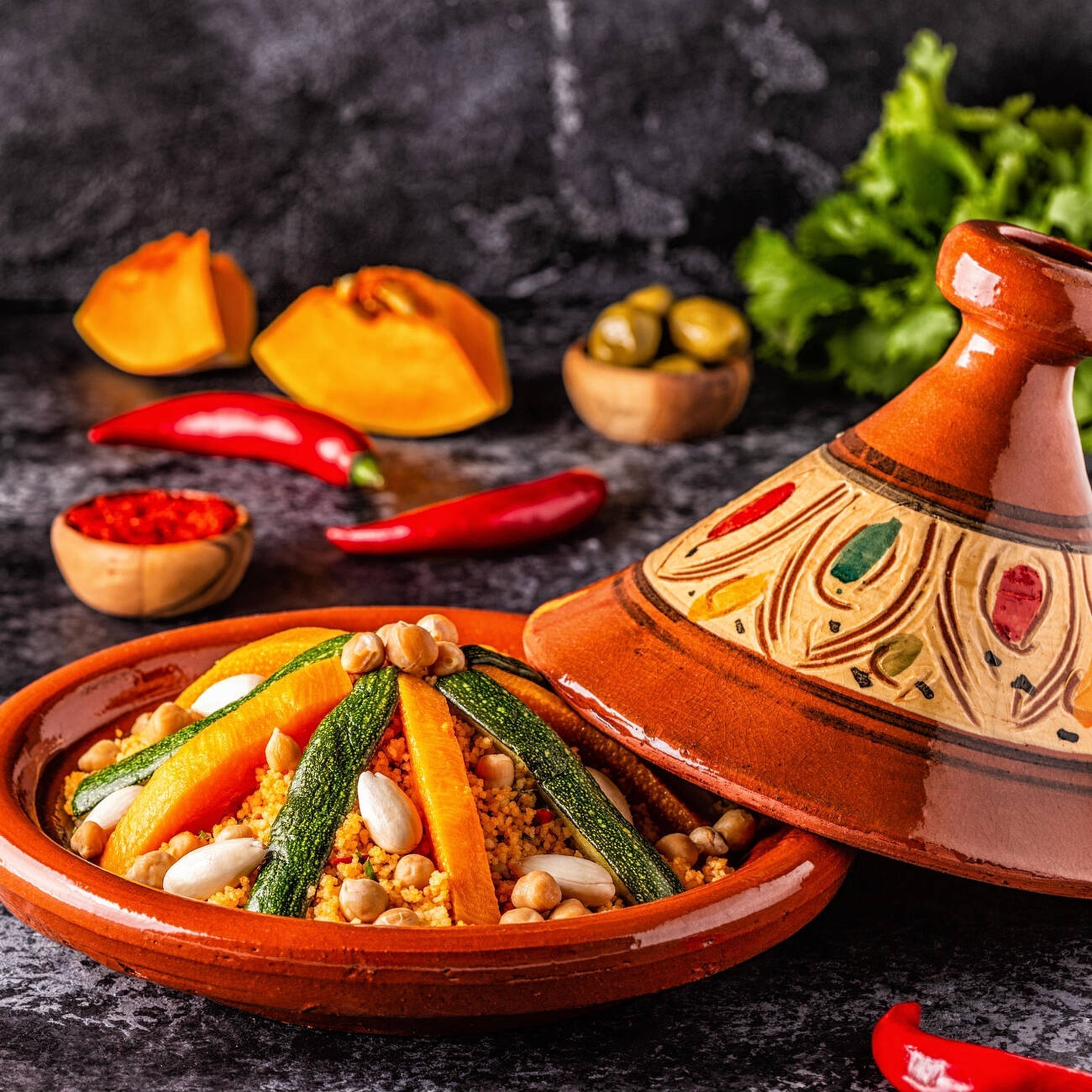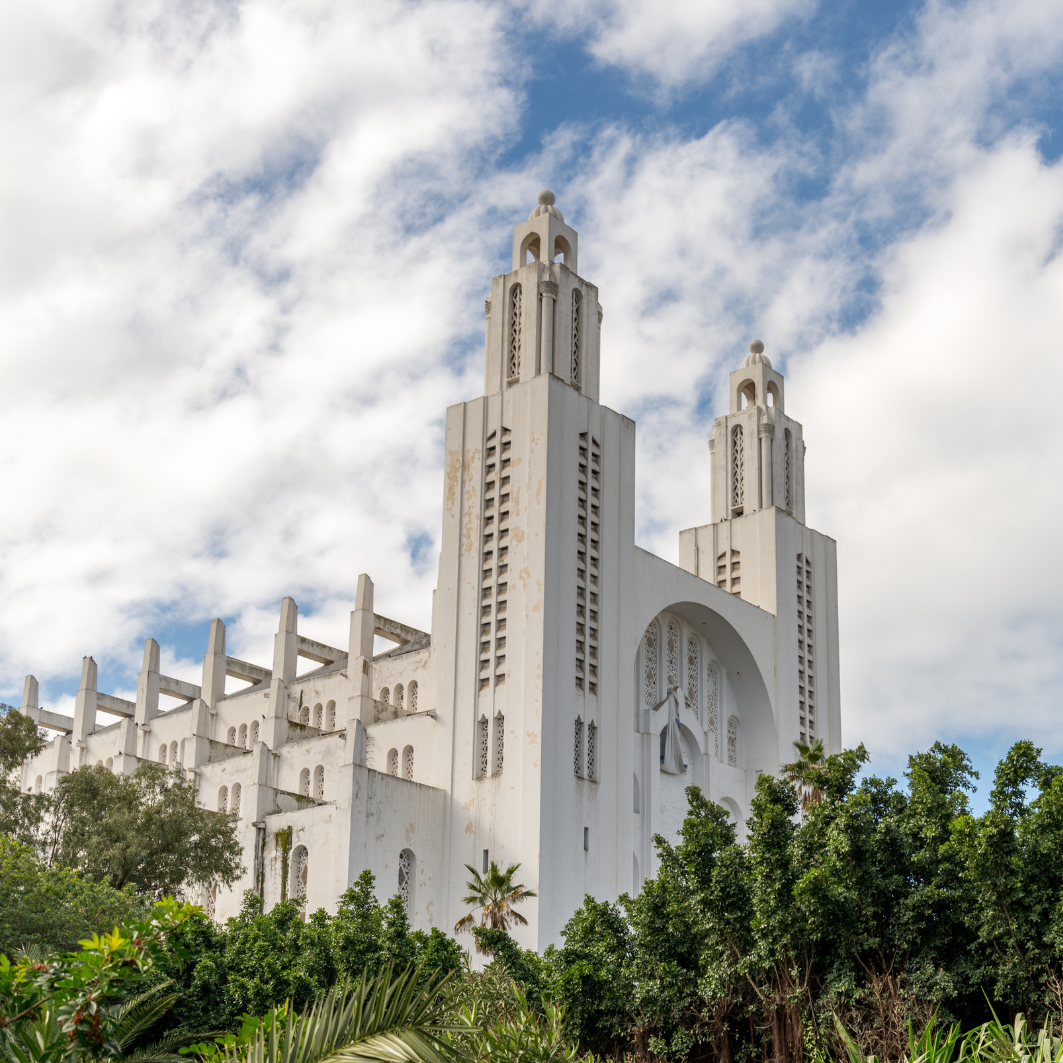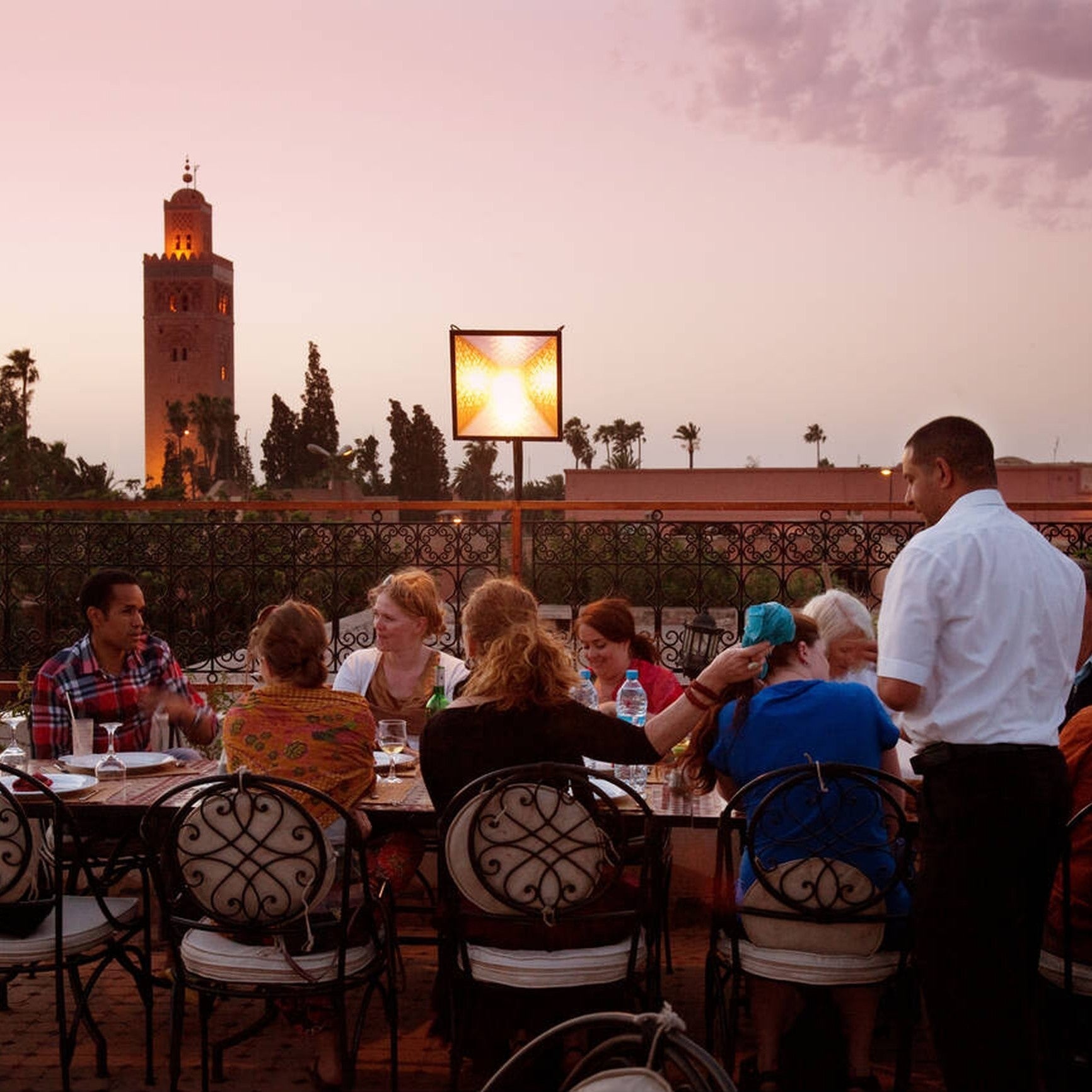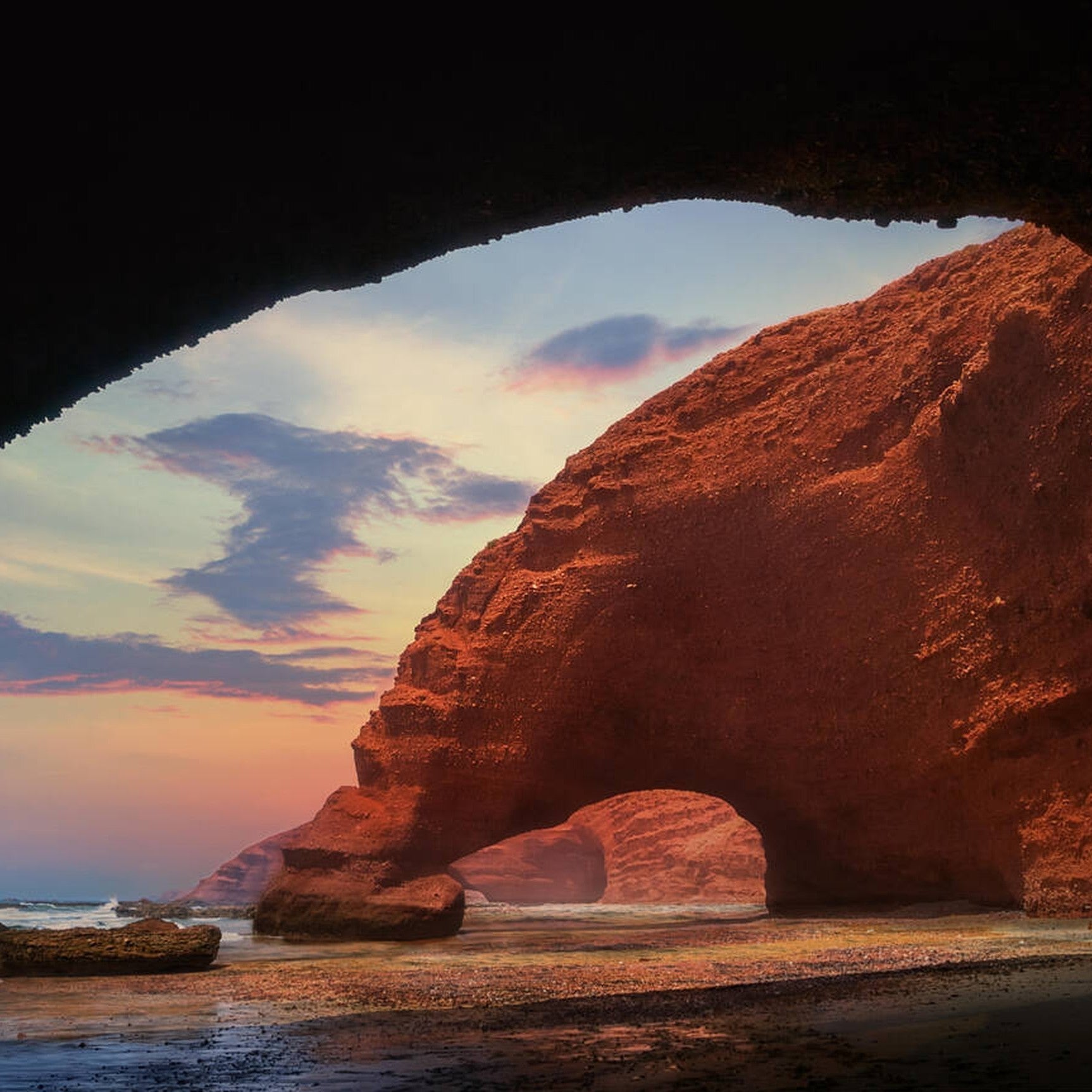Introduction
Le Maroc, connu comme le « Jardin de l'Afrique du Nord », attire chaque année d'innombrables voyageurs. Si vous prévoyez un voyage spontané dans ce pays enchanteur, ne manquez pas ce guide détaillé ! Des meilleures périodes pour visiter le Maroc aux attractions incontournables, en passant par les conseils de préparation et les précautions à prendre, ce guide contient tout ce dont vous avez besoin pour assurer un voyage au Maroc joyeux et épanouissant.
Meilleure période pour visiter le Maroc
Les meilleurs mois pour visiter le Maroc sont le printemps (de mars à mai) et l'automne (de septembre à novembre), en raison de :
• Printemps (de mars à mai) : le climat est doux, idéal pour explorer les déserts et les villes du Maroc. Vous pourrez profiter pleinement du charme unique de lieux comme le désert du Sahara et la place Jemaa el-Fnaa à Marrakech.
• Automne (de septembre à novembre) : le climat tout aussi agréable en fait une saison idéale pour explorer les sites historiques et les plages. Visitez la vieille ville de Fès pour une touche d'histoire, ou profitez de la brise atlantique à Casablanca tout en admirant la beauté naturelle du pays.
Avez-vous besoin d'un visa pour visiter le Maroc ?
Le Maroc est un pays sans visa pour de nombreux pays. Les citoyens de tous les pays de l'UE, des États-Unis, du Canada, de la Chine continentale, de Macao et de Hong Kong peuvent entrer au Maroc sans visa avec leur passeport, et le délai de séjour ne dépasse pas 90 jours. Si vous souhaitez savoir si votre pays respecte la politique d’exemption de visa du Maroc, vous pouvez le vérifier sur le site officiel du gouvernement marocain.
Dois-je me faire vacciner avant de me rendre au Maroc ?
Le Maroc n'a pas de politique de vaccination obligatoire, mais vous pouvez choisir de vous faire vacciner contre la rage et l'hépatite (A et B) en fonction de votre situation personnelle.
Dois-je souscrire une assurance voyage lorsque je voyage au Maroc ?
Des événements imprévus se produisent toujours, et c'est certainement un choix judicieux de souscrire une assurance voyage. Cependant, le coût des soins médicaux au Maroc n'est pas aussi élevé que dans certains autres pays. Si vous avez des problèmes de santé mineurs, vous pouvez vous rendre à l'hôpital public local pour vous faire soigner. Le coût n'est généralement pas trop élevé, mais le service peut être encombré et inefficace. Si vous choisissez de vous rendre dans un hôpital privé ou dans la clinique privée d'un spécialiste, bien que les conditions et l'efficacité seront meilleures, le coût sera également nettement plus élevé, et les frais de consultation initiale sont généralement de 300 dirhams.
L'assurance maladie couvre généralement ces dépenses, mais si vous êtes très préoccupé par d'éventuels problèmes médicaux, il est recommandé de choisir une police avec une protection médicale complète, surtout si vous ne voyagez pas en groupe. Lors de la souscription d'une assurance, assurez-vous de lire attentivement les termes du contrat pour comprendre si l'assurance couvrira tous les frais médicaux possibles. Bien que certains plans d'assurance voyage à bas prix ne couvrent pas entièrement tous les frais médicaux, ils peuvent généralement être annulés dans un certain délai après l'achat, ce qui vous permet de les adapter à vos besoins.
Quel est le taux de change de la monnaie marocaine ?
La conversion de devises en euros est relativement fixe, généralement 1 euro = 10,7 dirhams, 1 dollar = 9,6 dirhams, 1 RMB = 1,37 dirham, mais les dirhams et le RMB ne peuvent pas être directement échangés. L'euro étant stable et accepté dans les hôtels, restaurants et magasins haut de gamme, changez suffisamment d'euros avant votre voyage et convertissez-les en dirhams au Maroc.
Combien d'argent dois-je apporter pour un voyage au Maroc ?
Cela dépend de votre style de voyage. L'hébergement coûte généralement entre 200 et 400 dirhams par nuit ; Les auberges de jeunesse bon marché sont moins chères. Les repas coûtent entre 80 et 150 dirhams par personne dans les restaurants standard, tandis que les repas haut de gamme coûtent entre 150 et 250 dirhams. Les taxis coûtent à partir de 1,7 dirham en journée et 2,6 dirhams la nuit, avec des tarifs à 2,5 dirhams par kilomètre. Les bus coûtent entre 3 et 4 dirhams, et les billets de train ou interurbains coûtent entre 100 et 250 dirhams.
Quel type de convertisseur de puissance dois-je emporter au Maroc ?
La tension locale au Maroc est de 220 V et la prise d'alimentation est une prise standard européenne (norme allemande) avec deux têtes rondes. Veuillez préparer la prise de conversion avant de voyager. Si vous devez charger beaucoup d'appareils, il est préférable d'apporter une multiprise. Vous pouvez également acheter des prises de conversion dans les magasins de vente et de réparation de produits électroniques et dans les quincailleries, mais la qualité peut ne pas être très bonne.
À quoi dois-je faire attention lorsque je rentre et que je quitte le Maroc ?
La plupart des touristes qui se rendent au Maroc utilisent l'avion, et les principaux lieux d'atterrissage sont généralement Rabat, Casablanca ou Marrakech. De nombreux vols européens desservent directement Marrakech, tandis que les vols en provenance de Chine et d'Amérique du Nord atterrissent principalement à Casablanca.
Lorsque vous entrez au Maroc, vous devez présenter au douanier une version imprimée de votre itinéraire, des informations sur votre réservation d'hôtel et votre billet de retour. Si vous ne disposez pas de ces documents, l'entrée peut vous être refusée, alors assurez-vous de les préparer à l'avance.
Certains douaniers peuvent faire des allusions ou demander directement des conseils. À cet égard, vous devez rester calme et refuser fermement les demandes déraisonnables. Si vous rencontrez des problèmes, vous pouvez contacter l'inspection ou déposer une plainte.
Lorsque vous quittez le Maroc, vous devez remplir une carte de départ et indiquer votre adresse de résidence au Maroc sur la carte, conservez donc les informations d'hébergement du dernier arrêt.
La file d'attente à la douane peut prendre beaucoup de temps, généralement environ 1 heure, alors soyez patient. De plus, il peut y avoir des resquilleurs pendant la file d'attente, il est donc recommandé de faire attention et de planifier votre temps à l'avance.
Le Maroc est un pays qui contrôle les changes et l'importation et l'exportation de la monnaie locale marocaine, le dirham, sont explicitement interdites. Les touristes peuvent transporter un maximum de 2 000 dirhams en espèces lorsqu'ils quittent le pays, et l'excédent doit être converti en devise étrangère à l'avance ou transféré par d'autres canaux légaux. Si vous transportez plus de 50 000 dirhams en devise étrangère, vous devez présenter le formulaire de déclaration au moment de l'entrée avant de pouvoir le sortir du pays.
Les douanes marocaines stipulent que le nombre de boissons alcoolisées que vous pouvez transporter est de pas plus d'une bouteille, le nombre de cigarettes que vous pouvez transporter est de 2 cartons et vous pouvez transporter 150 ml de parfum et 250 ml de lotion. Dans les bagages à main, chaque article liquide ou gel ne doit pas dépasser 100 ml et le volume total ne doit pas dépasser 1 litre. Il convient de noter que même si les normes ci-dessus sont strictement respectées, les articles liquides tels que argan oil peuvent se voir refuser la sortie lors des contrôles de sécurité. Par conséquent, pour éviter des ennuis inutiles, il est recommandé de mettre des articles liquides tels que l'huile d'argan dans les bagages enregistrés, ou de consulter à l'avance la compagnie aérienne et les douanes sur les réglementations de transport pertinentes.
Attention au risque de fraude à la carte bancaire
Lorsque vous voyagez au Maroc, soyez particulièrement vigilant au risque de fraude à la carte bancaire. Certains touristes ont utilisé des plateformes telles que Booking pour réserver des hôtels marocains, mais ont été confrontés à des fraudes à grande échelle en Europe ou en Amérique du Nord avant leur départ. Le montant de la fraude dépasse de loin les frais de réservation. Ce phénomène peut être lié aux failles de sécurité du réseau de la plateforme ou à des fuites d'informations internes. Par conséquent, il est recommandé d'utiliser des numéros de carte virtuelle, des petites cartes de crédit ou des outils de paiement sécurisés tels que PayPal lors de la réservation d'hôtels marocains. En même temps, activez la fonction de rappel de consommation pour surveiller la dynamique des transactions à tout moment. Assurez-vous de vérifier régulièrement vos relevés de carte de crédit avant et après votre voyage. Si vous constatez des anomalies, contactez immédiatement la banque pour geler le compte à temps afin d'éviter des pertes financières inutiles.
Quelle langue parlent les Marocains ?
La langue utilisée par les Marocains est un dialecte de l'arabe (darija) qui est un mélange de berbère, de français, d'espagnol et d'anglais, comparable en diversité au créole parlé aux Bahamas ou à Singapour. Vous pouvez entendre plusieurs langues utilisées de manière interchangeable dans les conversations quotidiennes, comme « Marhaba ! Haltu redu café e thé ? » (qui signifie « Bonjour ! Voulez-vous du café ou du thé ? »)
Si de nombreuses personnes dans les grandes villes (en particulier dans les zones touristiques) parlent anglais et français, vous pouvez rencontrer des problèmes de langue dans les petites villes, les zones rurales ou sur les marchés où les habitants se rassemblent. Même si vous parlez arabe, vous ne comprenez peut-être pas entièrement le dialecte local. Si vous utilisez le fosha, arabe standard moderne, les habitants peuvent sourire en connaissance de cause car ils peuvent penser que vous êtes trop formel ou même que vous lisez un livre ancien.
Est-il facile d'accéder à Internet au Maroc ? Est-ce cher ? Dois-je acheter une carte téléphonique locale ?
Au Maroc, la plupart des cafés, restaurants et hôtels des villes proposent le Wi-Fi. Même dans certaines zones reculées ou dans les petits villages du désert, vous pouvez trouver des hôtels qui proposent des services Wi-Fi. Cependant, la vitesse d'Internet au Maroc est généralement lente et instable, de sorte que l'expérience Internet peut ne pas être aussi fluide que dans d'autres pays.
Les cartes téléphoniques de nombreux pays, comme China Mobile, peuvent être utilisées au Maroc à condition d'activer les services d'itinérance internationale avant le départ. Bien entendu, vous pouvez également acheter une carte téléphonique locale après votre arrivée au Maroc. Il existe trois principaux opérateurs de télécommunications locaux au Maroc, Maroc Telecom, Inwi et Orange.
Les cartes téléphoniques locales sont très rentables. Après avoir débarqué de l'avion, vous pouvez obtenir une carte téléphonique gratuite au guichet de l'opérateur dans le hall de l'aéroport avec votre passeport. Si vous n'en avez pas, vous pouvez acheter une carte de téléphone mobile locale dans le hall d'arrivée de l'aéroport ou dans un magasin en bord de route en ville. Chaque carte coûte environ 10 à 30 dirhams. Après l'achat, le vendeur doit activer votre carte téléphonique. Si vous souhaitez surfer sur Internet avec votre téléphone, vous devez acheter un forfait de données. 100 dirhams vous donneront 5 à 10 Go, qui peuvent être utilisés pendant un mois.
Lorsque vous passez des appels internationaux, vous devez composer le format suivant : indicatif du pays + indicatif régional + numéro de téléphone, tandis que les SMS sont envoyés au format suivant : indicatif du pays + numéro de portable. L'indicatif régional du Maroc est 00212. Lorsque vous appelez un numéro de téléphone mobile marocain depuis un autre pays, vous devez utiliser le format 00212 + numéro de téléphone mobile local.
Que mangent les Marocains ?
Lorsque vous mangez au Maroc, le pain est presque le plat principal de chaque repas. Même si vous commandez une pizza, on vous servira du pain et des olives en entrée. Ce pain a un goût similaire à celui de la baguette, avec une croûte dure et résistante. Ce pain est à la fois leur repas et leur vaisselle, utilisé pour tremper des œufs au plat ou de la viande mijotée.
Les Marocains mangent tard, le petit-déjeuner commence à 7 ou 8 heures, le déjeuner à partir de 13 heures et le dîner vers 20 heures. Il existe de nombreux restaurants qui s'adressent aux locaux et qui ouvrent à 19 heures le soir.
Le petit-déjeuner marocain se compose généralement de galettes (khobz) avec du lait, du café ou du thé à la menthe, un plat simple mais très populaire.
Les plats les plus courants pour le dîner sont le tajine et le couscous. Le tajine est généralement mijoté avec de la viande pure, bien sûr, il existe également des versions végétariennes. Les plats marocains sont généralement à base d'épices et les ragoûts sont souvent parfumés.
Bien que la cuisine marocaine semble accorder une attention particulière à la combinaison de viande et de légumes et à une alimentation équilibrée, en raison de la relative uniformité des plats à travers le Maroc et du fait que les saveurs des aliments et des boissons marocains sont riches en épices, bien qu'elles aient un arôme fort, elles peuvent ne pas être en mesure de répondre aux besoins des gens en matière de goûts divers. Par conséquent, après avoir mangé de la nourriture marocaine pendant quelques jours, de nombreuses personnes commenceront à regretter d'autres saveurs. Si vous souhaitez ajuster vos papilles gustatives, essayer la cuisine chinoise peut être un bon choix, qui peut apporter des expériences gustatives différentes et soulager la fatigue d'un régime unique.
En raison du fort ensoleillement, les fruits marocains sont délicieux et frais. Les figues ont deux saveurs, verte et violet foncé, et sont sucrées et délicieuses. Le fruit du cactus est très courant le long de la route, a bon goût et est bon marché, mais comme il contient plus de fibres, vous ne pouvez pas en manger trop, sinon cela peut provoquer une constipation.
Les Marocains ont tendance à avoir un goût sucré dans leur alimentation, et saupoudrent même du sucre glace et de la cannelle en poudre sur certains plats de viande pour augmenter la douceur. Les plats font souvent attention à la combinaison de viande et de légumes, et semblent être équilibrés sur le plan nutritionnel.
Au Maroc, il y a peu de menus en anglais, et encore moins avec des images. La plupart des menus sont en arabe et en français. Lorsque les touristes commandent de la nourriture, ils utilisent souvent un logiciel de traduction pour deviner.
Certains restaurants marocains et stands de marché nocturne n'ont pas d'assiettes, mais utilisent directement du papier sur la table en guise d'assiettes. Il n'y a pas non plus de couverts, donc les locaux mangent avec leurs mains.
Il existe de nombreux cafés au Maroc, spécialisés dans le café et le thé à la menthe. Le thé à la menthe marocain est très particulier, et vous devrez peut-être boire une tasse de thé toute la journée. La plupart du temps, les hommes se rassemblent à l'extérieur du café, face à la rue, en train de discuter, et les femmes sont presque invisibles dans ces scènes, ce qui est aussi un spectacle.
Culture du pourboire
Au Maroc, le pourboire est généralement exigé lors des repas. En règle générale, le pourboire se situe entre 3 et 15 dirhams, ce qui n'est pas un montant élevé, mais c'est aussi une règle courante. Dans la plupart des restaurants, les clients peuvent décider s'ils veulent donner un pourboire et combien. Le montant du pourboire dépend du type de restaurant, de la qualité du service et des préférences personnelles, et il n'est généralement pas trop lourd.
Que peut-on acheter au Maroc ?
Le Morocco Mall de Casablanca est le plus grand centre commercial du Maroc. Bien qu'il soit un peu éloigné de la ville, il abrite un aquarium circulaire très spectaculaire qui attire de nombreux touristes. Le Morocco Mall propose des marques de luxe telles que LV, ainsi que des marques au rapport qualité-prix relativement élevé. Il convient toutefois de noter que les prix ici ne sont pas bon marché. À l'exception des produits de luxe, les autres produits ne peuvent pas bénéficier de détaxe à l'aéroport.
Les Marocains boivent-ils de l'alcool ?
Le Maroc est un pays musulman. La loi religieuse n'autorise pas la consommation d'alcool (mais de nombreux Marocains ont déjà enfreint la loi). Il faut beaucoup d'argent et d'efforts pour demander une licence d'alcool pour vendre de l'alcool, donc la plupart des restaurants marocains n'ont pas d'alcool. Si vous voulez boire, vous ne pouvez vous rendre que dans certains restaurants ou hôtels des grandes villes. Dans les grandes villes comme Casablanca et Marrakech, vous pouvez également trouver des bars et des discothèques qui aiment faire la fête jusqu'au petit matin, mais l'alcool dans ces endroits est relativement cher. Vous pouvez également acheter de l'alcool dans les magasins d'alcool ou les grands supermarchés Carrefour, mais vous devez l'acheter avant 20 heures, sinon ces endroits seront fermés conformément à la réglementation.
La bière marocaine est chère, 250 ml à 330 ml de bière, le prix est de 30 à 60 dirhams. Le vin rouge marocain a bon goût. Un vin rouge local couramment vu dans les bars coûte environ 90 dirhams pour 375 ml, soit 60 yuans, et 140 dirhams pour 750 ml, soit moins de 100 yuans. Le rapport qualité-prix reste bon.
Comment s'habiller pour voyager au Maroc ?
Le Maroc est un pays musulman et les femmes locales ont des habitudes vestimentaires différentes. La plupart des femmes ne portent que le foulard, exposant leurs joues, et certaines femmes couvrent tout leur corps, exposant uniquement leurs yeux. En tant que touriste, votre tenue vestimentaire est un choix personnel, mais vous devez respecter certaines exigences vestimentaires lorsque vous vous rendez à des occasions officielles ou dans des lieux religieux. Par exemple, lorsque vous visitez des lieux religieux tels que la mosquée Hassan II, il existe des normes vestimentaires spécifiques. L'exigence minimale est que les femmes ne peuvent pas porter de jupes ou de shorts en dessous du genou. Si vous ne voulez pas porter de pantalon long, vous pouvez emporter avec vous un châle qui vous protégera du soleil, vous tiendra chaud la nuit et pourra également être utilisé comme simple châle ou sarong lors d'occasions formelles.
Signalisation dans la vieille ville et dans le désert
Au Maroc, chaque ville possède une zone appelée Médina, qui est la vieille ville locale. À l'exception des villes côtières, le terrain de nombreuses anciennes médinas est principalement constitué de montées et de descentes, et les itinéraires des rues sont extrêmement compliqués. Parmi elles, la vieille médina de Fès est la plus compliquée, avec ses milliers de ruelles qui s'entremêlent pour former un labyrinthe, et les touristes peuvent facilement se perdre. Dans ces rues profondes, le signal des téléphones portables est généralement interrompu et la navigation est impossible. Vous ne pouvez compter que sur les conseils des habitants pour trouver une sortie en douceur.
Dans les zones désertiques du Maroc, la couverture du signal est relativement mauvaise. Dans le désert, il n'y a presque pas de réseau de téléphonie mobile, et même certaines installations de communication de base ne sont pas accessibles. Vous ne pouvez monter les dunes de sable que pour recevoir UN signal d'une barre et envoyer des SMS. Par conséquent, avant d'entrer dans le désert, assurez-vous de vous préparer à l'avance et d'informer vos partenaires de votre itinéraire à l'avance.
Le vendredi est le dimanche des musulmans
Tous les vendredis, surtout à midi, vous constaterez que la plupart des magasins sont fermés. En effet, le vendredi est le jour saint de culte des musulmans, appelé dans l'islam "Jour du Jumu'ah", le jour des prières en congrégation. Allah a dit dans le Coran : "Ô vous qui croyez ! Lorsque l'appel à la prière est lancé le jour du Jumu'ah, hâtez-vous d'invoquer Allah et cessez tout commerce." Par conséquent, ce jour-là, la mosquée sera très fréquentée et la plupart des musulmans se rendront à la mosquée pour participer à la prière. Pendant cette période, de nombreux magasins et certains établissements publics seront également fermés. Lorsque vous voyagez, n'oubliez pas d'en tenir compte lors de la planification de votre itinéraire pour éviter tout impact inutile.
Conseils de santé pour les voyageurs au Maroc
1) Il est recommandé de ne boire que de l'eau en bouteille et de commander de l'eau minérale en bouteille supplémentaire (eau plate) dans les restaurants ou les cafés, car l'eau fournie avec les repas est généralement de l'eau du robinet. En particulier, ne buvez pas l'eau des stands de rue, car de nombreux endroits n'ont pas d'eau courante pour laver et désinfecter les gobelets, ce qui peut présenter un risque pour la santé.
2) La source d'eau pour la fabrication des glaçons est généralement inconnue et est sujette aux bactéries, essayez donc d'éviter d'ajouter des glaçons aux boissons.
3) Les légumes crus, en particulier dans les salades, peuvent ne pas être soigneusement lavés et sont sujets aux bactéries ou aux parasites. Il est préférable de choisir des aliments cuits ou de manger dans des restaurants fiables.
4) Sur les plages marocaines, il y a généralement des sauveteurs dans les zones touristiques populaires en été, mais à d'autres saisons ou sur des plages plus éloignées, les installations de sécurité peuvent être incomplètes, alors assurez-vous de faire attention à la sécurité.
5) Bien que la consommation de marijuana et de certaines drogues soit relativement détendue au Maroc, elles sont toujours illégales. Veuillez vous éloigner des zones et des personnes concernées et éviter de rencontrer des consommateurs de drogues dans les cafés ou les bars. Dans la rue, certaines personnes essaieront de vendre de la marijuana, et certaines personnes vous en vendront même activement en marchant dans la rue. De temps en temps, vous verrez des gens rouler de la marijuana pour la vendre aux coins des rues ou dans des endroits reculés. Ils ne se soucient pas des touristes qui les entourent et restent souvent dans des coins discrets. Restez vigilant et évitez tout contact avec ces activités pour assurer votre propre sécurité.
6) Le trafic urbain au Maroc est relativement chaotique. Vous devez conduire prudemment lorsque vous conduisez, en particulier sur les routes de montagne, où la visibilité est faible, vous devez donc rester très vigilant. Lisez notre Guide de voyage en voiture au Maroc pour en savoir plus sur les circuits en voiture au Maroc.
7) Au Maroc, à l'exception des transports publics, tous les conducteurs et passagers doivent utiliser la ceinture de sécurité. Que ce soit en ville ou sur les routes rurales, cette réglementation doit être respectée pour assurer la sécurité.
Taxi au Maroc
Les taxis au Maroc sont principalement divisés en deux catégories : le Petit Taxi et le Grand Taxi.
● Petit Taxi : Il opère principalement en ville, l'état des voitures est généralement mauvais et seuls quelques véhicules sont relativement propres. La plupart des petits taxis n'utilisent pas de compteurs et les passagers doivent négocier le prix avec le chauffeur et confirmer s'il s'agit bien de dirhams avant de monter dans la voiture.
● Grand Taxi : Généralement utilisé pour les déplacements longue distance entre les villes, et également courant pour quitter la ville. Ce type de taxi n'est généralement pas équipé d'un compteur, les touristes doivent donc apprendre à négocier.
Dans les zones très fréquentées comme à proximité des gares, le prix de départ des taxis est généralement plus élevé, il est donc recommandé de choisir un taxi en mouvement pour éviter de se faire facturer trop cher par un chauffeur de taxi vide qui « attend des clients ».
Attractions recommandées au Maroc
1. Mosquée Hassan II (Casablanca)
Située au nord-ouest de Casablanca, la mosquée Hassan II est la troisième plus grande mosquée du monde et la plus grande mosquée en bord de mer. Construite en 1987, cette structure emblématique de l'architecture arabe est un symbole du Maroc. Sa grandeur et sa conception complexe ne manqueront pas de vous émerveiller.
Prix du billet : 140 dirhams
Horaires d'ouverture : du lundi au dimanche : de 9 h à 16 h
2. Mausolée de Mohammed V (Rabat)

Ce mausolée, construit en 1962, est le lieu de repos final de l'ancien roi du Maroc. Connu pour son design marocain typique, les motifs complexes et les détails luxueux de ce site en font une attraction incontournable.
Prix du billet : Gratuit
Horaires d'ouverture :
Du lundi au vendredi : de 8 h à 18 h
Du samedi au dimanche : de 8 h 15 à 17 h 45
3. Palais royal de Rabat (Rabat)

Construit en 1785, ce palais reflète l'architecture classique des palais arabes et a plus de 200 ans d'histoire. Il sert de lieu de réception pour les dignitaires étrangers et comprend une mosquée pour la famille royale. Bien que les visiteurs ne puissent photographier que la cour et ne puissent pas entrer dans le palais, les fleurs luxuriantes et la place exquise valent le détour.
Prix du billet : Gratuit
Heures d'ouverture : Du lundi au dimanche : de 9 h à 17 h
4. Chefchaouen (La Ville Bleue)

Surnommée la « Perle bleue de la Méditerranée », Chefchaouen arbore une palette de nuances de bleu qui recouvre ses bâtiments. Les maisons blanches et bleues, associées à une ambiance côtière rafraîchissante, lui donnent l'impression d'être une île de la Méditerranée, rayonnant de charme sous la lumière du soleil.
Prix du billet : Gratuit
Horaires d'ouverture : Ouvert toute la journée, du lundi au dimanche
Liste de contrôle avant le voyage au Maroc
1. Documents : passeport, billets de retour et cartes bancaires.
2. Monnaie : la monnaie officielle du Maroc est le dirham marocain (MAD). Les voyageurs peuvent se munir de dollars américains ou d'euros et les échanger contre des dirhams à leur arrivée au Maroc.
3. Français:Carte SIM : activez l'itinérance internationale ou achetez une carte SIM marocaine à l'aéroport.
4. Médicaments : apportez des médicaments contre le rhume, des pilules contre le mal des transports, des médicaments contre les allergies et des aides digestives, car les matinées et les soirées au Maroc peuvent être fraîches.
5. Appareils électroniques : appareil photo, chargeurs, câbles, écouteurs et batteries externes pour plus de commodité.
6. Français:Transports : Les principaux modes de transport sont la voiture et le train. Pour une expérience plus aventureuse, envisagez de louer une voiture ou une moto.
7. Vêtements : Renseignez-vous sur le climat de votre destination au Maroc et emportez des vêtements appropriés.
8. Langue : Bien que l'arabe soit la langue principale, l'anglais est largement compris. Apprenez des phrases arabes de base ou emportez un appareil de traduction.
9. Soins de la peau : emportez une crème hydratante, une crème solaire et des produits de toilette, car les régions désertiques du Maroc peuvent être très sèches.
Précautions à prendre pour voyager au Maroc
1. Respectez les coutumes locales et les traditions islamiques. Évitez de porter des vêtements trop révélateurs ; une tenue décontractée est recommandée.
2. La circulation dans certaines zones peut être chaotique ; soyez prudent lorsque vous traversez les rues.
3. Évitez les zones isolées, surtout après la tombée de la nuit.
4. Protégez vos biens, en particulier dans les endroits bondés. Évitez de regarder constamment votre téléphone.
5. Convenez toujours du prix du taxi avant de monter dans le taxi.
Numéros de téléphone d'urgence
● Numéro de police : indicatif régional de la ville +19, en dehors de la ville : indicatif régional de la ville +177
● Numéro des pompiers : indicatif régional de la ville +15
● Numéro d'urgence : indicatif régional de la ville +15
Coordonnées de l'ambassade
Ambassade de la République populaire de Chine au Royaume du Maroc
Adresse : 16, Charia Ahmed Balafrej, Souissi, Rabat
Tél : ((212) 0537754056/92
Ambassade des Etats-Unis au Royaume du Maroc
Adresse : Km 5.7, Avenue Mohamed VI, Souissi, Rabat 10170
Tél : (212) 0537637200
Ambassade de France au Royaume du Maroc
Adresse : 1, rue Ibn Hajar – Agdal (BP 602 - Chellah), Rabat
Tél. : (212) 0537689700
Ce guide complet pour voyager au Maroc vous aidera à planifier un voyage sans tracas. Lisez-le attentivement pour éviter les problèmes potentiels et profitez au maximum de votre temps !
Pour en savoir plus sur le Maroc, consultez notre blog : Guides de voyage Maroc.
Vous prévoyez de voyager au Maroc ? Ces itinéraires vous inspireront :
Aventure de 3 jours au Sahara : de Marrakech à Fès via Aït-ben-Haddou et le désert de Merzouga
Voyage de 5 jours dans le nord du Maroc : un mélange d'histoire et de culture
Aventure de 7 jours au Maroc : Un voyage sur mesure au départ de Marrakech
Odyssée marocaine de 13 jours : Un voyage sur mesure au départ de Casablanca
Vous souhaitez personnaliser votre itinéraire de voyage au Maroc ? N'hésitez pas à nous contacter pour des expériences de visite personnalisées :
E-mail : [email protected]
WhatsApp : +212713053383
WeChat : MLG0714624860
